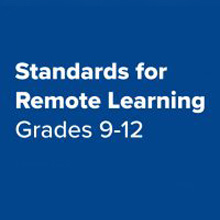On February 22, 2022 the Connecticut State Department of Education (CSDE) released their final version of the Connecticut Standards for Remote Learning for Grades 9-12. The standards will begin in the 2022/2023 school calendar year. The Connecticut Standards for Remote Learning only apply for high school students. Remote learning has not been approved for grades other than 9 through 12.
The standards for remote learning were developed by a group of educators and administrators from across the state that are referred to as the “Remote Learning Commission” and the “Educator Design Team.” Notably absent from the commission and team, however, are parents – particularly of children with special needs. To be clear, the CSDE developed standards for remote learning for our high school kids without any member or feedback from parents, including parents of children with disabilities, whatsoever.
Within the 24 pages of standards for purported remote learning guidance, only one page anecdotally provides any directional guidance on remote learning that is plausibly applicable to special education students. Specifically, Standards Section 3.1 references that:
The online teacher uses digital pedagogical tools that support communication, productivity, collaboration, analysis, presentation, research, content delivery, interaction, differentiation, and required specialized instruction for students with IEPS as determined by PPTs.
This is the only reference contained within the entire guidance that relates to children with disabilities accessing remote guidance.
As of the date of the CSDE’s issued guidance, it is unclear how the CSDE’s new remote learning standards will comply with a student’s legal right to receive a free appropriate public education under the Individuals with Disabilities Education Act. The CSDE’s remote guidance also fails to address the various inequities within our urban school districts as to how high-speed internet will be provided to high school students with disabilities as a related service that are interested in attending remotely. In short, it is our position that the CSDE’s guidance falls short on a number of fronts and requires further discussion and renegotiations with additional engaged parent-based members in order to remotely make remote guidance an possible solution for students with disabilities.



